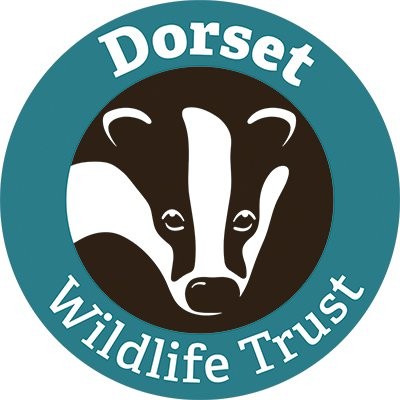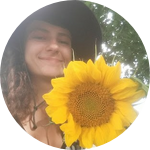Project Results
In 2023, we carried out independent research in applied mycology, operating on the hypothesis that fungi are significantly undervalued in energy calculations, despite their role in returning organic resources to any system they inhabit.
Based on biological and chemical principles, we cultivated white-rot fungi to degrade various local lignocellulosic residues under both in vitro and in vivo conditions. The cornerstone of our protocol lies in an aerobic fermentation process that integrates water resource management with naturally occurring microorganisms present on lignocellulosic biomass.
In combination with the decomposition of diverse carbonaceous feedstocks, the biological adaptiveness of white-rots leads to an enormous palette of compounds, materials and foods with different characteristics possible. At our small scale, we autonomously produced gourmet mushrooms, medicinal compounds, mycocompost, mycofiltration bricks and poly pore paper in a continuous bioproduction process. Our results are continuously released on our website here.
These practices paved the way for a participatory science research-action at EcoCycle’s shared garden and workshop to enhance the natural fertility potential of diverse biomasses. The initial report and suggested research directions are visible in our website's "Workshop" section. This was a synergistic opportunity for people of various horizons (civil society / farmers / scientists ) to meet, like autonomous fungal hyphae building a unified network.
The stake is now to produce commons of experiences and knowledges applicable to the land of those who have manifested buoyancy. These include the identification and collection of wild fungal strains adapted to specific local biomass residues. Complementarily, we can establish companion plants that are very favorable to arbuscular mycorrhizae and also serve as shade plants and make use of "myco-composts" (the organic matter seeded by cultivated mycelia from local fungi); the scientific monitoring of these models to evaluate results; the wide dissemination of practices to agroecology stakeholders in the Dordogne and to mycologically-inclined communities.
About This Project
France and Europe's first agricultural region, Nouvelle Aquitaine, generates an excessive flux of lignocellulosic waste. Fortunately, this is one of mushroom's favoured food.
Our locally-led initiative of citizen-scientists will survey farms and industries, to identify knowledge about mushroom production as a waste management biotechnology.
We plan to experiment mushroom cultivation to suit local agro-industrial-based residues and aim to investigate competitivity with current waste practices.
Ask the Scientists
Join The DiscussionWhat is the context of this research?
It is well established in the scientific community that mushroom production is a sustainable biotechnology which can valorize waste streams, add value to existing outputs and reduce environmental and economical costs through innovation. This is especially true of so-called "hard-working" or white-rot fungi.
While success of low-cost mushroom production has been demonstrated with different substrates, or "lignocellulosic" materials, it has not yet been widely adopted by established industries and is yet to become an upcycling standard.
La Nouvelle Aquitaine, first agricultural and forestry region of France, is a relevant case-study of applied mycology, or how mushroom cultivation can impact and engage with established waste practices.
What is the significance of this project?
Generally, agro-industrials residues are water-insoluble materials reported to be rich in so-called "lignocellulosic materials" that includes cellulose as the most abundant, followed by hemicellulose and lignin.
In our region, the paper and wood industries alone account for 26% (784.000t) of the global waste production from economical activity, excluding agriculture and forestry. Of those 26%, only a third is valorized, the rest being disposed or burned.
Our goal as citizen-scientists is to help realize the full potential of mushroom biotechnology as a game-changer in reducing waste accumulation. At the same time, we can help farmers by establishing cascading value chains of mushroom-derived products: high-quality food, bee or human medicines, or spent compost for ruminant feed
What are the goals of the project?
First, non-profit organization SPORADIC collects data on from numerous agro-industrial waste producers of Nouvelle-Aquitaine. The results will be compiled in a podcast and showcased in exhibitions and events.
Second, we set up the infrastructure in order to experiment with positively inclined industrial lignocellulosic biomass and diverse white-rot fungi species. Applying EkoFungi's low-cost techniques, our production model is scalable up and down, that is replicable to meet major global challenges in urban and rural areas around the waste productions.
Third, we evaluate the biological efficiency of our substrates conversion and analyse the chemistry of the substrate and fruitbodies.
Now we can evaluate the production, costs and competitivity with other waste treatments.
Budget
These are the earliest phases of SPORADIC's research project, which aims to fill in the gaps between lignocellulosic biomass producers and mycologists in Nouvelle-Aquitaine.
(1) To begin with we need to survey farms and industries in regard to their lignocellulosic waste productions and mushroom biotechnology knowledge. The required equipment, transport and communication, including sound work and a podcast of the resulting data, are estimated at 1500$.
(2) In the mean time, SPORADIC will set up a small production unit in Dordogne to welcome the raw substrate(s) and start experimenting waste conversion with different white-rot species.
This requires the construction of an infrastructure equipped with all cropping conditions i.e. temperature, light, relative humidity, and ventilation, etc.
Estimated costs for this are $3000, including waste and mycelium transports, production unit installation and laboratory analysis of fruitbody and substrate in different stages of the process.
Endorsed by
 Project Timeline
Project Timeline
Cartography, Contact & on-site survey and interviews
April-May-June-July
Réalisation: podcast soundwork & visual artefacts productions for the exhibitions
May-July
Production unit installation & selection of substrate candidates
April-June
Experiments growth cycles with raw substrate(s) and white-rot species
June-September
Lab analysis 1.0 : fruit body and substrate
September-November
lab analysis 2.0 : double-extraction of fruit body
December
Jan 16, 2023
Project Launched
Mar 08, 2023
Project Launched
Apr 10, 2023
Modelization of sustainable waste treatment / mushroom production given substrate types
Apr 17, 2023
Map lignocellulosic waste productions in Dordogne
May 01, 2023
Contact farms and industries
Meet the Team
Team Bio
SPORADIC is a citizen-science non-profit organization which has organized multiple workshops of "fungi-cultures" and applied mycology throughout the french territory, across various ecosystems: High-Pyrenees (65), North (59), Haute-Garonne (31), Dordogne (24).
For our new project we have a team that includes one mycologist, one psychologist, one anthropologist, two movie-makers and other citizen-science volunteers.
Maria Higelin
Hi! I am SPORADIC's president, a french-romanian champignologue based in central France.
I prefer the title champignologue to mycologist given I do not work on taxons (aka phylogenetic analysis). It sounds as a novel evocation in people's mind which I believe to be resonant with all the innovations happening in mycology nowadays.
I have been trained in an old regenerative farm in Serbia, Beograd in the production of gourmet and medicinal mushrooms from agricultural waste, and the production of mycomaterials and compost from spent substrate.
Before I became so passionate about mushrooms, in the last couple of years, I have been working in video-mapping and sound-design. I also have an educational background in philosophy of sciences and comparative philosophy.
Additional Information
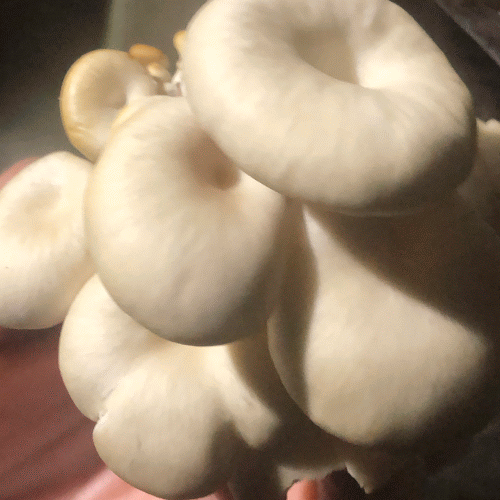
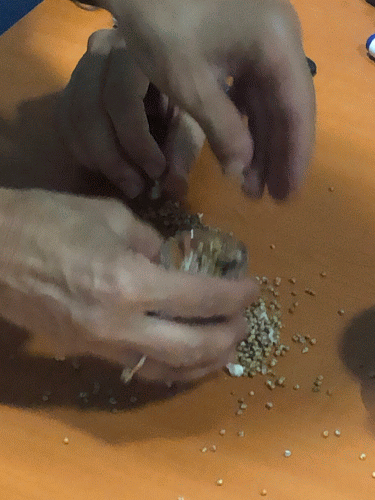
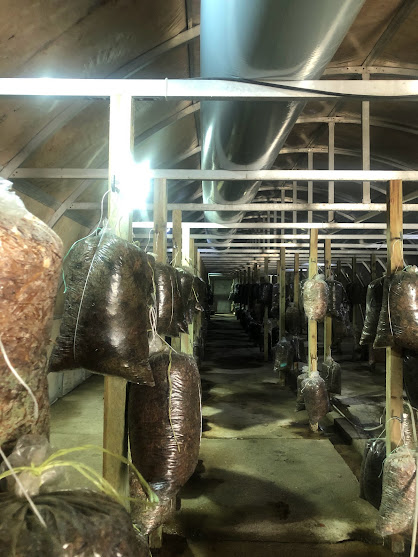
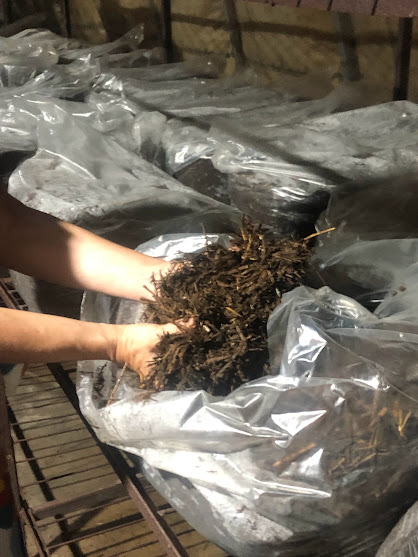
Project Backers
- 8Backers
- 100%Funded
- $4,950Total Donations
- $618.75Average Donation
